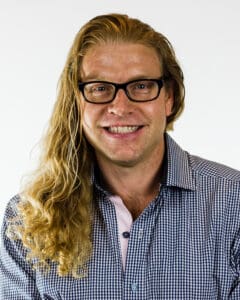Formerly incarcerated people in the US are nearly 10 times more likely to experience homelessness than the general public. Having a criminal record makes it more difficult to find a job, rent an apartment, and go to school. In some states, a person with a felony conviction loses the right to vote and, for certain drug-related felonies, is disqualified from public aid. The collateral damage of a felony conviction creates systemic barriers to successful reentry, jobs, and even college.
In this powerful essay, Matthew Patterson, SAFE Project’s Student Voice Liaison, opens up about his battles with addiction, incarceration, homelessness, and HIV to share his journey to recovery, why he doesn’t want to be defined by his past, and why he’s an advocate for “banning the box”.
Where I Started
In my active addiction, I made a lot of mistakes. I bounced back and forth between jail and homelessness. For a long time, I was unemployable and barely functional. I was a daily injection meth user and resorted to survival sex work to fund my addiction. When I found out I was HIV positive in jail, I was not surprised. At the time, I was not sure I wanted to live anyway. Life had been so bad for so long that I had little hope it could ever be any different.
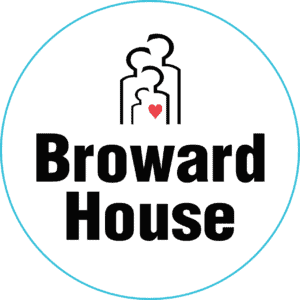
Broward House was different and I remember crying so much when they gave me the key to my room because it had been years since I had my own key to anything. It was an overwhelming moment. I had my own bed; a place where I could sleep at night that did not require me to degrade myself. Somewhere I did not have to worry about being thrown out, raided by the police, robbed, or beaten up—I finally felt safe.
What about Recovery?
I do not think of recovery as a completely linear thing with a distinct before and after. I was in and out of recovery many times, and each time I came back with more knowledge and experience to add to my recovery toolbox. My relapses were hard and painful, and they have provided me with the humility and compassion I previously lacked in my recovery.
Anyone who says that they are in recovery is -in the words of SAMHSA, “A process of change through which individuals improve their health and wellness, live a self-directed life, and strive to reach their full potential.” Recovery is about health, growth, and self-determination. It must be inclusive and meet people where they are. Society degrades, dehumanizes, and excludes people who use drugs and recovery needs to be the antithesis of all discrimination. I believe that to truly support people in recovery, we must also support people who use drugs, and I am a big believer in Harm Reduction philosophy and bridging the gap between prevention and recovery. I want to destigmatize and reframe the idea of relapse, and I am committed to not shaming people in active use.
Back to School
I remember my first job in recovery. I was a few weeks sober, and I was hired at Chipotle—one of the few companies that do not ask about criminal history on the application. I was so proud to have a legitimate job for the first time in years. I worked hard and, after a month or two, became good friends with the manager. One night he invited me out for drinks, and I felt comfortable sharing that I was in recovery and abstaining from alcohol. He was very supportive. Eventually, I shared my whole story with him, including my involvement with the criminal court system. Again, he was very supportive, and it felt great to be honest and accepted. A few weeks later, he recommended me for a promotion, and I was subsequently fired. The promotion triggered an automatic background check. There was nothing my manager could do; the order came straight from corporate.
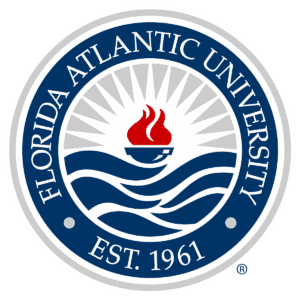
When I came back into recovery this last time I was presented with a different opportunity. While still in treatment, I used the Homeless Tuition Waiver to begin classes at the community college. My goal was to get my Associate’s Degree and then look for a job. I had heard that education was the best way to get out of poverty, but that is not truly why I started. I honestly just wanted to prove to myself that I could finish something. I was not convinced that an education would make much difference—I would still have the same past with the same record, but it was free, and my therapist believed in me so, why not?
What Changed?
I did. Going to school and being a college student had a profound effect on my self-esteem and how I view myself as a person. It allowed me to build up self-efficacy and meet people outside of my normal circle.
On my first day of classes, I felt like everyone could see all my insecurities. I was so used to being treated like a criminal by the police and society—being followed around in stores because I was dirty, or people crossing the street to avoid me—that I really expected the other students and my professors to do the same. Stigma and shame had infected me deep down inside and I literally thought that everyone knew everything I was ashamed of—like I had “Convicted Felon, Homeless, Junkie” tattooed across my forehead!
Instead, nobody treated me any differently than anyone else. I was accepted by my professors and my peers. I worked hard, did well, and was acknowledged. Slowly, I started to accept myself and to view myself as a real student and not an outsider. Eventually, I made friends and felt comfortable sharing about my recovery and my past.
I am very different than I was when I started taking classes. Now I do believe that education is the most effective way to end poverty and oppression, while also acknowledging that there are very real barriers preventing the people most in need from receiving these services.
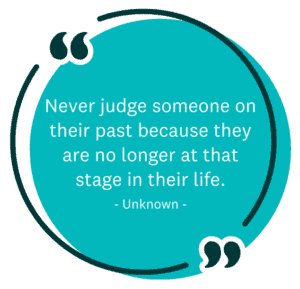
I founded the Collegiate Recovery Community at Florida Atlantic University, not only because I wanted to connect with other students in recovery and support each other but also to change the way that society views us. We are not second-class citizens…nobody should be.
Ban the Box
The box asking, “Have you ever been arrested or convicted of a crime?” on college applications almost prevented me from getting to where I am today. I had a long history of being denied jobs and services because of this box and when I came to it on my college application I immediately stopped. I wanted to quit. I wanted to lie, but I was afraid they would do a background check. I was in treatment though and had the support of my therapist, my peers, and the rest of the staff. I was lucky; other potential students are not. I did not quit, but it took me three weeks of start-and-stop deliberation to finally click submit.
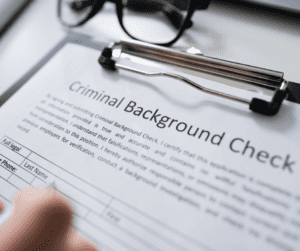
My history of homelessness, incarceration, addiction, HIV status, and more is my motivation to continue learning and pursuing my career in social work. I am now an advocate committed to the goals of social equity and justice, and my lived experience provides me with unique insight into how to better serve marginalized and oppressed populations.
Biography
